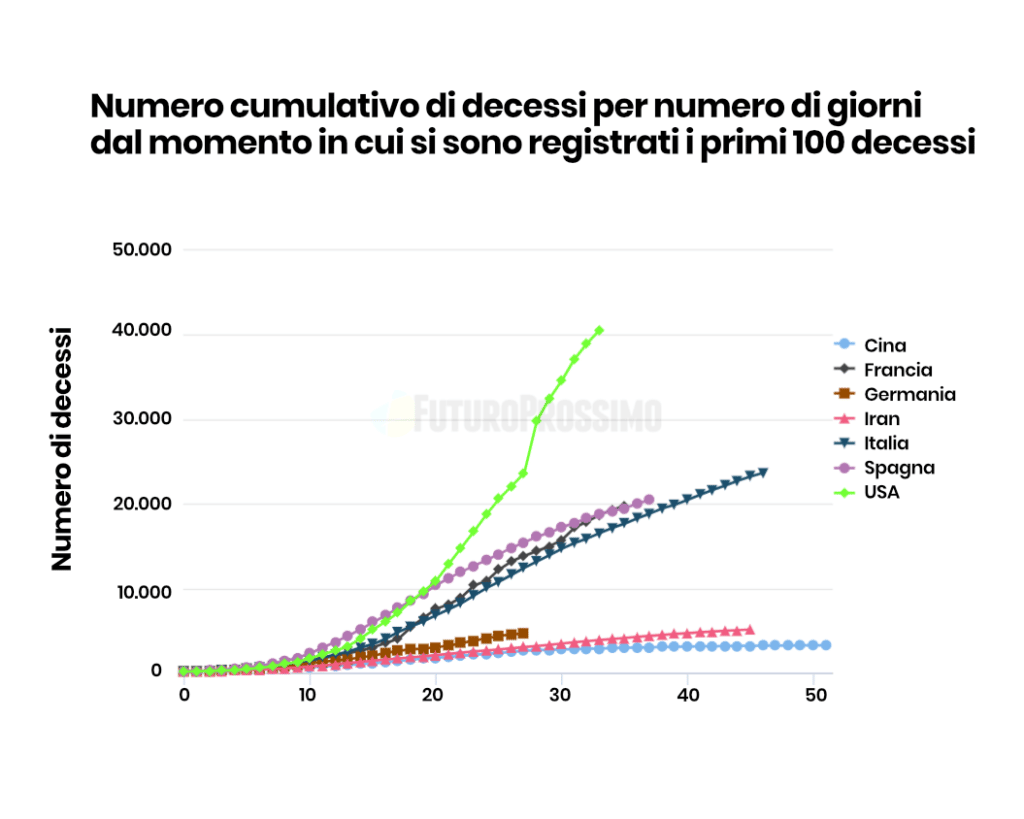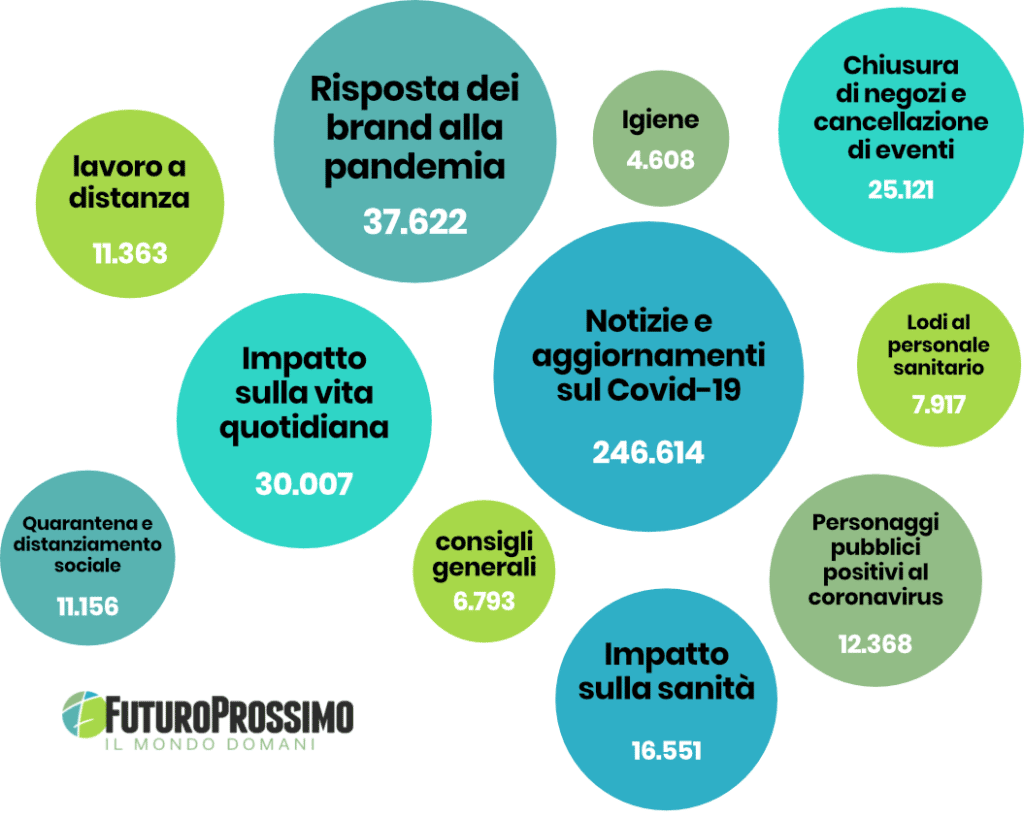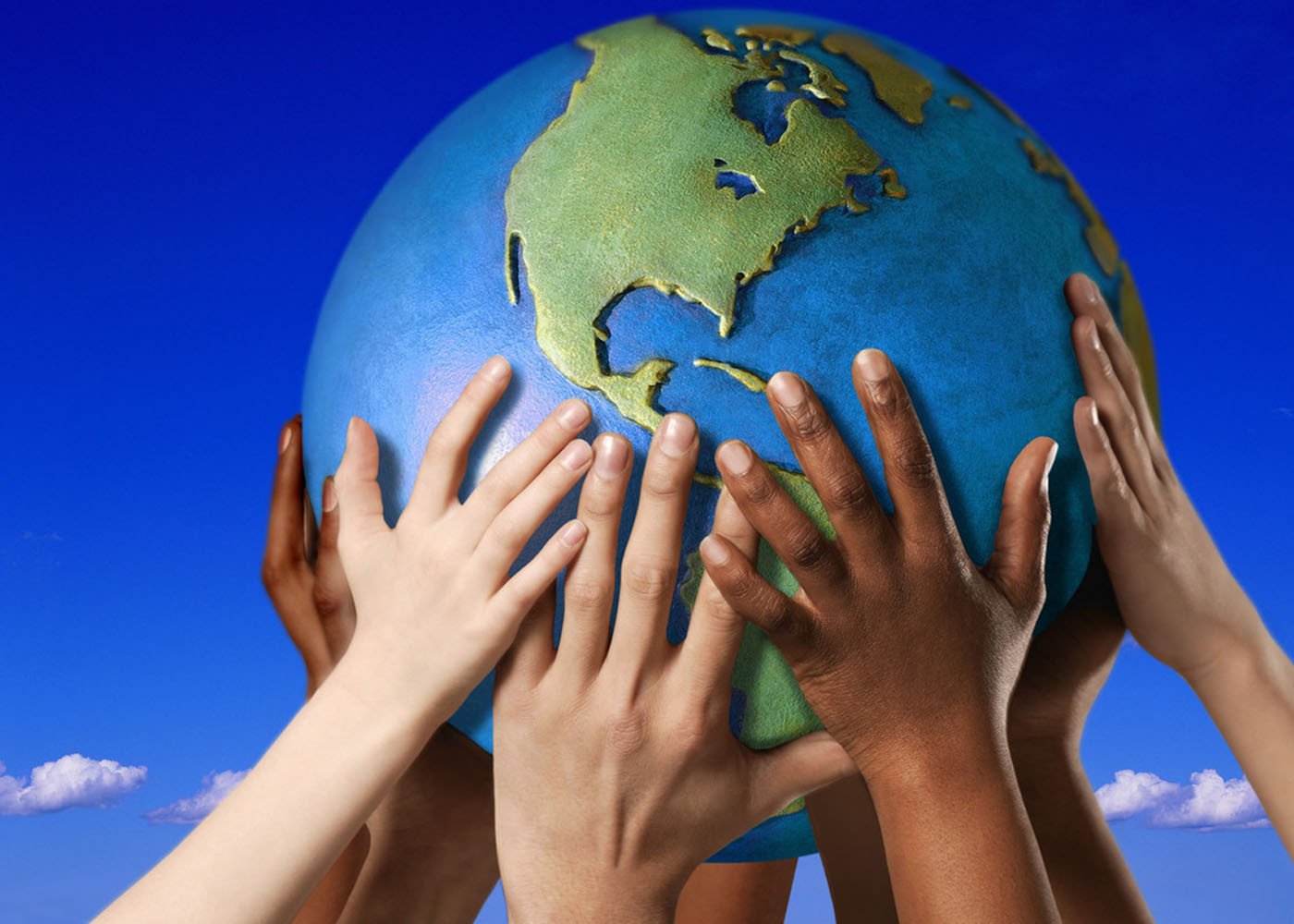The situation is not good. It is useless to go around it. The coronavirus has destroyed our fun, the future we had in mind, sometimes our bank account. It's a global nightmare. We all wish it never happened. I have a duty to say it, also out of respect for those who have lost their lives: what does not kill you, makes you stronger. Yes, it is commonplace. The clichés are rhetorical, banal, often stupid. But often they are also correct. And this could be in the specific case. The coronavirus could leave us a better world after it hit like a tsunami on our lives.
Saying this seems crazy, right? Every day there are more and more deaths, mistakes by authorities, people losing their jobs, scary theories about the virus and grim predictions about what this new, Great Depression will be like. But once again, the information circus doesn't eat healthy. It feeds on only two ingredients: panic and anger. It doesn't show us a big picture.
Partly he doesn't want to. In part it can't. The whole picture is complex. Nobody has a clue what will happen with this coronavirus .
We tend to give less consideration to scientists who advance timid experimental models, because they seem too uncertain to us. On the other hand, we give credit to "experts" who launch into predictions as if they were sorcerers. Why?
Humans have an innate predisposition to believe people who seem confident. It is no coincidence that there are so many courses that aim to build or improve self-esteem.
This blog has often hosted opinions from both experts, but if you ask me you will not be sure. I don't know what will happen. But I know it's not all already written. Events affect us, but how we react is our responsibility. We can spend this time worrying about how the world will change. Or we can spend this coronavirus time to create a better world.
Fabrizio De André had a rather clear point of view: in his “Via del Campo” he wrote that nothing comes from diamonds, while flowers grow from manure. In times of science, the poet's words also come in handy, because the coronavirus is truly an avalanche of manure. It could give us a way to unite in a more global society. Or turn us into a planet of wary tribes. It depends on us.
Because it's time to merge
Historically, pestilence and disease have always killed the poorest. The Black Death actually increased the standard of living of the peasants. It killed so many that the survivors could ask for and obtain better terms.
It's simple, poor people often have worse overall health. When subjected to a new disease, they become ill and sometimes die more easily. The irony of fate is that we tend to identify the disease as the cause, and not society.
In the US there is widespread debate about whether Covid-19 would affect some groups more, such as people of color. But it's true? The epicenter of the disease was Europe until two weeks ago. And Europe was much worse than China.

Would anyone have ever imagined looking at a graph (based on the data we have, perhaps revisable) and seeing Iran doing exponentially better than the US?
Rich and poor, black and white, men and women. Everyone gets the virus . The elderly are more at risk, as are people with chronic diseases such as diabetes, obesity, hypertension. Although in this sinister form, the virus unites us. It makes us feel the same in other ways. We are all together. And all exposed.
Isolation connects us
We complain about the quarantine that forces us indoors. But let's be clear: we were lucky. Quarantines instituted in the Middle Ages punished disobedience with whippings and torture that even included cutting off ears. Now there are fines. If that's not enough, think about the fact that in the Middle Ages there was no web. From home in recent months I have seen people order food, read, watch and listen to practically everything, talk to anyone, work, take gym classes, graduate, get married.
We are not isolated. We can connect with the whole world. See that Italians are having the same problems. And the Iranians. The Russians. The Americans. Never in history has there been such an opportunity for connection on a global scale.
We against him
Humans have always been driven by the tribal mechanics of “us versus them.” Throughout history men have always been against other men. From another country, another religion, another political inclination, another ethnic group.
But now it's "us against the virus". Flattening the infection curve makes us stay at home to protect the community. It teaches us to do our part for the common good. We were very good at splitting up, usually. Often against "the others". Now everyone, if we want, can be "the others".
Everyone is helping
Examples of a sense of duty are before us every day. We see people all over the world doing the same thing, and often making small, big gestures towards others. This is why we are more inclined to help each other. Heroic medical personnel, companies that donate money or products. They change their entire production, or they bring food to the elderly and the needy.
This kindness will not go away. We will not return to previous levels of selfishness. And do you know why? Because helping is a bit like exercising. You never want to get off the damn couch, but when you do, well, it feels great. Both reluctance and satisfaction are evolutionary traits. The first allowed us to conserve energy and the second helped us play a role.
The company executives will also be in for a surprise after this. The explicit goal of corporations is to make profits. That's great for shareholders, but not so great for employees. No one has ever felt inspired to “increase a billionaire's fortune by another half million.” Profit is not a human goal, it's what happens when you forget what human means.
Now companies have crossed the line. They are doing things to help without a profit, often at a loss financially. It's not out of altruism. Mostly they do it to look good. And because for the bottom line it is dangerous to appear insensitive. The second most discussed topic after pandemic news is brand responses.

When the crisis ends, managers (and employees) will not like to return to pursuing corporate objectives such as “an increase in brand loyalty index by 0,5%”. New missions are needed, because the system has already shown serious limitations and if it does not renew its values it will die. There were already some companies committed to doing good in the world beyond profit. Now most of them will have to (ob torto collo) adopt this goal. A world in which companies relax their obsession with profit a little could become, after the coronavirus, a very different and better world than the current one.
For science, a new "kingdom" and a different way of "reigning"
We can only work on a problem if we have a shared understanding of it. Even in the Spanish flu of 1918 there was no shared understanding of the disease. People gave different names to the same disease in different countries. And each country had a different theory about the transmission mechanisms. Well: it took us almost 90 years to have a pure approximation (in 2005) of the total number of infected people. With Covid anyone can open a map on their mobile phone and see the data in real time. Of course, there are even great approximations, but there is an abysmal difference.
The last ten years have not been promising for science. Between the "flat earth" tensions and the advent of "spectacle scientists" who do not like balance but indulge in boastful braggadocio, we have moved away from science. We have conflated personal truth with objective truth and everything has become a matter of opinion. This doesn't work with a virus. It doesn't matter what you think. The only thing that matters with the virus is whether you are objectively right.
This is why people want REAL scientists again. People who help us with difficulty, and not without self-criticism (these unknown in many recent "phenomena" that we see on TV) to create a model of this disease. Something we are slowly catching a glimpse of despite the enormous amount of fake news and scammers.
Trust in science will matter. It will provide shared themes. And if we have shared themes, we will work together to make scenarios better. Our “echo chambers” keep us divided like modern tribalism. Science can perhaps become the glue of humanity.
New politicians
Those who crave power should never have it. Often the very people who shouldn't be involved in politics enter politics. Those who care about cooperation and community or global issues, or want to do good, avoid getting involved because politics evokes terrible things in them. For many, the "politician" is a character who evokes emotional manipulation, sensationalism, unfounded opinions and hypocrisy.
For some time now many of these people have been trying to "do" politics. This crisis is serious enough to make most of them do political things, even in spite of themselves, to help people. This is making them realize that they will have to get their hands dirty and get involved politically too, otherwise the world will continue to suck. Perhaps this coronavirus crisis will bring out a new generation of politicians who in a few years will make the world better and the current political class even better.
Global tools
Many global institutions appeared after another planetary catastrophe - the Second World War. WHO was one of them. In its history it has managed to eradicate smallpox, a disease that killed 300-500 million people. It has successfully prevented SARS, MERS, Ebola, and swine flu from growing to dangerous proportions. Yes, it seems that it failed to stop Covid-19. But you have to understand that it has no real power. It cannot force countries to do anything, it can only advise. And it has to ask for funds, so it risks accusations of bias (the latest, those from US President Trump).
Much of the current scale of the problem is due to countries ignoring WHO advice. The time has come to realize that we also need global institutions for global problems. This means that WHO must address global health problems. And it means much better international cooperation. Countries will have shared reporting, monitoring and integrated response plans. This will create a more multinational identity than a national identity.
And we will also think more about other global problems, such as climate change. After the coronavirus we could (should) decide that we need a global organization to deal with the climate crisis, which contributes to a better environmental world.
Prevention is a marathon
This crisis is basically short-term. How long do you think it will last? In history books we quickly overlook wars that last decades, plagues and events that affect entire centuries. If our grandchildren read that we were locked in the house for a year, two, even three years, what difference will it make for them? Of course, it's hard for us. But it will also force us to think about those who come after. It will make us learn to think a little more long-term. Most of humanity's problems are due to our need for instant gratification: eating and getting fat, being perpetually dissatisfied, buying compulsively, being anxious.
The coronavirus is a global pandemic resulting from poor long-term planning.
For a while now we will try to prevent something similar from happening. And we will think of other bad situations that could be prevented. We will pay more attention to the long term, and this is something that historically leads to unusually good decisions. Because the many wise people who have left us, our dear grandparents or elders, cannot have died in vain.


